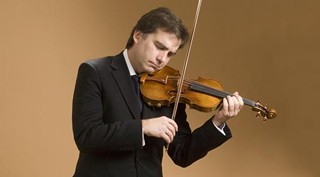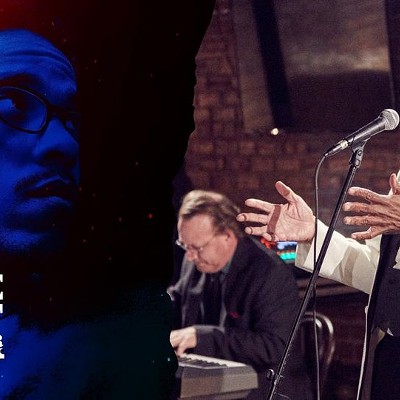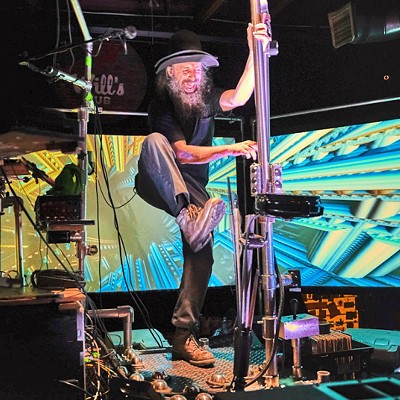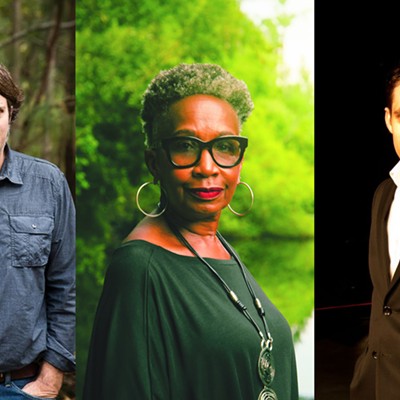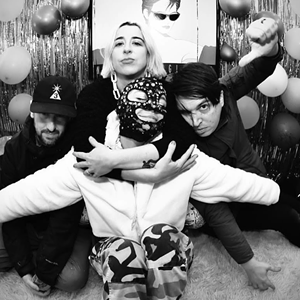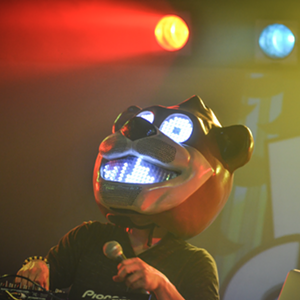One of the great baroque composers, the Italian Antonio Vivaldi carved his name into the stone of the immortals with his four-movement The Four Seasons. Written nearly 300 years ago, it's one of the best-known, and most beloved, classical music pieces.
Of the present-day American composers, none is better known than Philip Glass, whose works have encompassed minimalist "art music," symphonic pieces, chamber music, electronica and operas.
Robert McDuffie didn't exactly introduce the two composing giants, but he was instrumental in bringing them together. McDuffie, a world-class violinist who's played with the top orchestras, premiered Glass' The American Four Seasons less than a year ago in Toronto.
As part of a 30-city tour, McDuffie and the Venice Baroque Orchestra will play the Glass work - it's the composer's second violin concerto - Nov. 17 at the Lucas Theatre, preceded by Vivaldi's The Four Seasons.
This is the hottest classical music ticket on the road this season, and perhaps not surprisingly, it's being brought to us through the Savannah Music Festival front office.
McDuffie, a native of Macon, plays a $3.5 million Guarneri del Gesu violin that once belonged to Paganini. He lives in Manhattan with his wife and two children, and is usually globe-trotting off somewhere or other, playing the music he's been passionate about since childhood. He is the artistic director of the Rome Chamber Music Festival in Italy.
Still, a Georgia boy is a Georgia boy, and in 2004 he co-founded the Robert McDuffie Center For Strings, a conservatory based at Mercer University's Macon campus.
Let's start with a chicken-or-the-egg question. Did Philip Glass come to you, or did you approach him?
Robert McDuffie: I went to him. I had been playing his first Violin Concerto for years - I had recorded it, so we knew each other professionally - I could tell people at dinner parties that I'd met an icon. When I started thinking about taking something on tour, paired with the Vivaldi, I wanted it to be by a living American composer. And the only name that came to mind was Mr. Glass.
As I told him - and he didn't kick me out of the house when I told him this - I thought that Vivaldi was Italy's Philip Glass, and that he was America's Vivaldi. I think he was a little amused, but he loved the idea of the project.
He wanted this piece to stand on its own, and not to be compared to Vivaldi. And I think we've accomplished that. When we ended up disagreeing which was "Summer" and which was "Winter," we decided not to name the movements. Which I think was a really smart thing to do.
Were you specific in what you wanted from him?
Robert McDuffie: I came to him with a laundry list, and he came through with every single request, including the Vivaldi orchestrations - strings, a baroque-sized orchestra - the only change that I asked for was to use a synthesizer instead of a harpsichord.
Why was it important to you to modernize it in that way? Because of Glass' relationship with electronic music?
Robert McDuffie: That's definitely part of it. I wanted the piece to rock. I think that so many great musicians - people like Paul Simon, David Byrne and David Bowie - I kind of wanted to tap into that. And he was totally cheerful about it. So much of his music ends softly, and beautifully, and fades out, and I just asked him to write a rock-out last movement. Which he gladly did.
One of the reviews I read of the live performance said "The last movement goes on too long." Do you think the "rock-out movement" is perhaps a bit too "modern" for those who appreciate Vivaldi? Or do you even care about such things?
Robert McDuffie: I don't think it's too long. We've just finished our 19th city on this American tour, and every single one - you can predict it - we play Vivaldi first, and everybody is smiling ... you can fall into a rut. It's almost like singing "Feelings" at a wedding reception. You just have to keep it as fresh as you can. Everybody loves it, they know all the tunes, and they respond beautifully.
But something happens when the Glass is played. Each audience, in the last 19 cities, has just gone berserk after his piece.
To your mind, is there a direct thread between Vivaldi and what Glass has done? Are they of a pair?
Robert McDuffie: It's showbiz, this project. It's a little showbiz. I'll be the first to admit that. But there is absolutely a thread. I don't think it's a reach to say that Vivaldi was the world's first minimalist. They do have similar patterns in the repeated bass notes, with the very beautiful melodies up top. Very seductive, very manipulative. They have their own voice.
Stravinsky said that Vivaldi wrote the same piece 500 times. And some people could say the same thing about Philip Glass, which is totally, I think, ignorant. Or just dismissive. And it makes me even more parochial, and much more defensive on behalf of him and his music.
The Vivaldi is programmatic. It tells you what to listen for, and it tells you when it happens because it follows Vivaldi's sonics. So you know when the dog is barking, you know when the wind is howling, and the hunter is out there and the rain falls on the tin roof.
But Glass is much more abstract, and it really lets the audience have their own experience.
You've said you wanted the Center for Strings to be the "Juilliard of the South." You went to Juilliard. Is that really your goal, to have a world-class music school in Macon?
Robert McDuffie: Well, it already is. I'm just so happy to say. It's a big Macon thing for me; I would never have wanted to do this anywhere else. I've lived in New York 35 years but I am a Georgian, and I love my town.
The thing about Macon, it's been famous for exporting really great musicians. But what's happening now is that great international students are coming to Macon to realize their potential. I think that's the beauty of what's happened there.
Because of our philosophy, we're keeping it intimate. We're going to cut it off at 26 kids. But it is a real, total-immersion comprehensive program with some of the world's greatest artists coming to Macon on a regular basis.
I learned to count at Juilliard, but I learned to play the violin in Macon.
Robert McDuffie and the Venice Baroque Orchestra
Where: Lucas Theatre, 32 Abercorn St.
When: At 6:15 p.m. Wednesday, Nov. 17
Tickets: $15-$65
Phone: (912) 525-5050
Online: scadboxoffice.com
.

